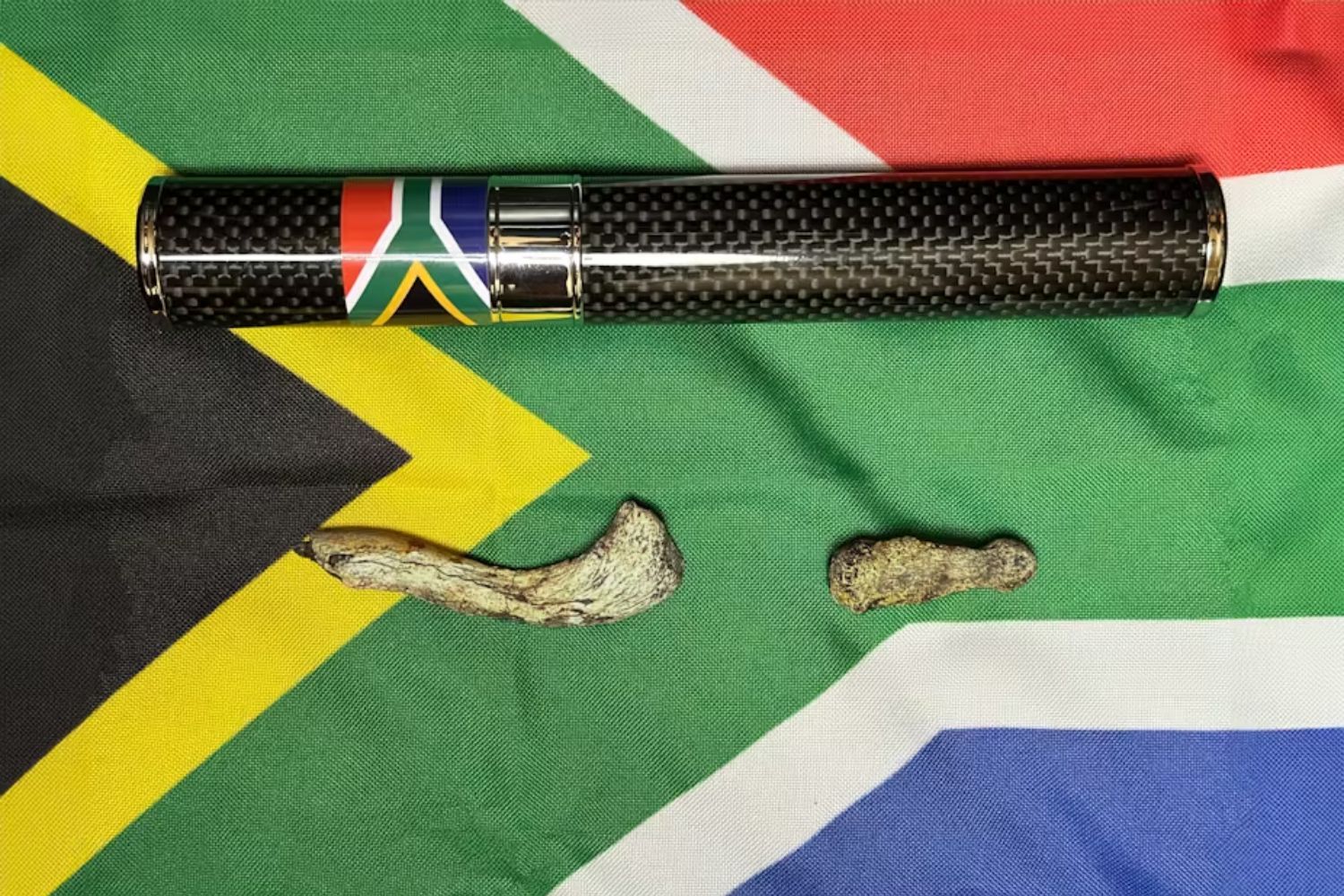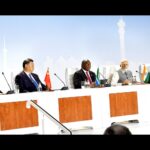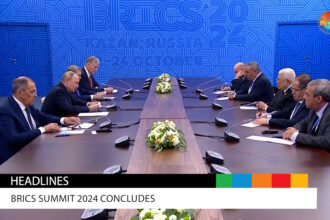When a Virgin Galactic commercial flight soared into space on 8 September 2023, there were two Virgin Galactic pilots, an instructor and three passengers on board – as well as two fossils of ancient prehuman relatives from South Africa.
Timothy Nash, a businessman, carried a clavicle belonging to Australopithecus sediba and the thumb bone of a Homo naledi specimen.
The fossils’ brief journey – the VSS Unity’s flight lasted just an hour – was organised by palaeontologist Lee Berger, who led the team that discovered and described Homo naledi in 2015. Berger was granted an export permit in July by the South African Heritage Resources Agency (SAHRA) to take the fossils from the country to the US launch site for VSS Unity.
SAHRA is a “national administrative body responsible for the protection of South Africa’s cultural heritage”.
The event has drawn the ire of scores of human evolution researchers from South Africa and beyond. Some have labelled it “unethical” and a “publicity stunt”. Berger has not yet responded to the furore. In a statement quoted by Nature, SAHRA said it was “satisfied that the promotional benefit derived was appropriately weighted against the inherent risk of travel of this nature”.
The Conversation Africa asked Dipuo Winnie Kgotleng, director of the Palaeo-Research Institute at the University of Johannesburg, and Robyn Pickering, co-director of the Human Evolution Research Institute at the University of Cape Town, why the space flight created such unhappiness.

Why are scientists so angry about the fossils being sent to space?
There are a number of reasons.
One is the threat to South African heritage. According to the SAHRA permitting policy, fossils of this nature are only allowed to travel for scientific purposes and should be securely packed to prevent damage. The fossils travelled in space in a sealed tube – and were then kept in an individual’s pocket as he floated freely.
There is no scientific reason for allowing these fossils to travel to space. No new knowledge has been generated and no community, either local or international, has been engaged on this science.
Also, doses of radiation which these specimens were exposed to during this trip could have potentially permanently altered the fossil microstructure, affecting any data which might be required in the future.
A second issue is that the A. sediba clavicle is a type specimen: it is the original physical example of the species and, if such a specimen is lost or destroyed, it is gone forever.
So, is it only wealthy, famous rich white men who can have access to fossils? Poor communities do not have access to the same privileges?
Finally, this event demonstrated the unequal power relations at play in accessing this invaluable heritage. Some local communities – like the people of Taung, where a 2.8 million year old child’s skull nicknamed the Taung Child was discovered in 1924 – have requested access to fossil specimens that originated from their areas. In the case of the Taung Child, there have reportedly been discussions “over a long time” to have the skull returned by the university where it is stored.
Professor Berger’s SAHRA application called the fossils’ space flight a ‘once in a lifetime opportunity to bring awareness to science, exploration, human origins and South Africa and its role in understanding Humankind’s shared African ancestry’.
This is an example of what we call neo-colonialism. The science of human evolution has a long, dark past of exploitation and extraction. The main perpetrators of this past were privileged white men, so this latest event feels familiar but is really not OK in 2023.
Our field is just beginning to grapple with its past, and we’ve made some progress in the last decade. Something like this puts us right back into the olden days.
So what happens next?
Several professional bodies in various African regions have issued statements expressing their unhappiness about the treatment of the fossils.
Various arms of the palaeoscience community, such as the Association of Southern African Professional Archaeologists, have directly asked SAHRA and the Cradle of Humankind Management Authority (which is responsible for preserving the world heritage site where the fossils were found) and the government to address us and the South African public more broadly.
We are also pushing for these organisations to reflect on this issue and to discuss changes to their permitting policy. We’re confident that the outrage we’ve demonstrated will guard against something like this happening again in the future.
September is Heritage Month in South Africa, a time when we are asked to come together as a country, to celebrate, learn about and explore our heritage as a way to build unity in a diverse society. Our common heritage, represented by the fossils, is a great tool for bringing us together as a country. Treating the same fossils in this way goes against this noble aim.
This story originally appeared on The Conversation and was republished with permission. Read the original article here
Also read: Egypt: New x-ray technology reveals hidden details in tombs













